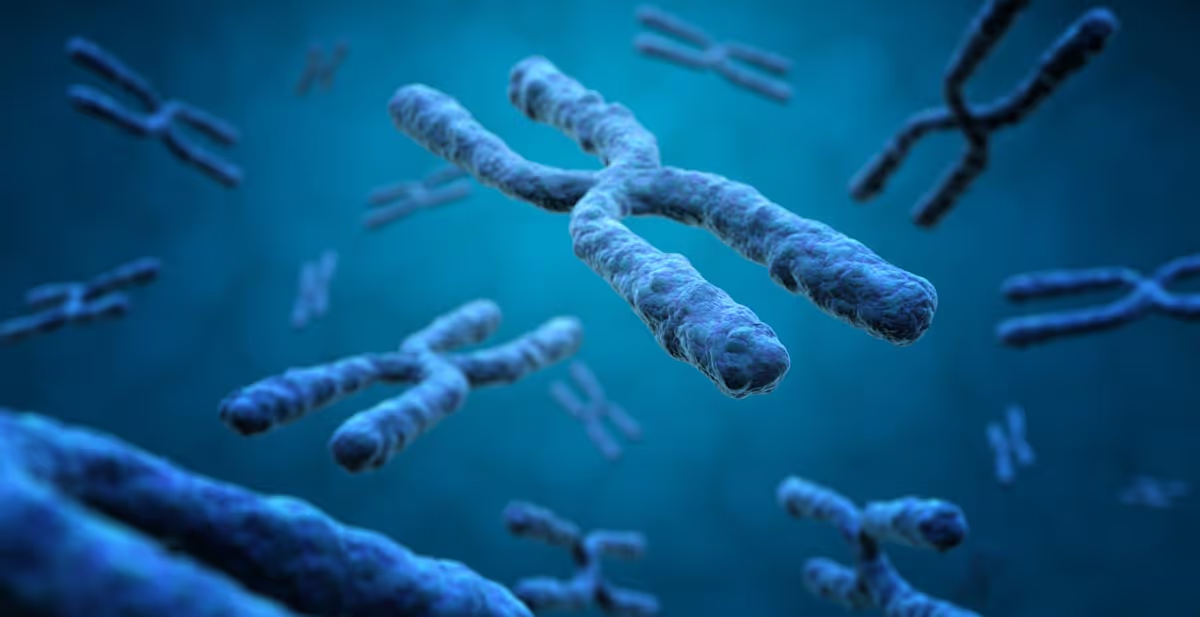The Role of Genetics in Fertility Issues

When fertility challenges arise, most people think of hormonal imbalances, age, or structural concerns. But behind many unexplained or recurring fertility struggles lies a less visible—but equally critical—factor: genetics.
When fertility challenges arise, most people think of hormonal imbalances, age, or structural concerns. But behind many unexplained or recurring fertility struggles lies a less visible—but equally critical—factor: genetics. At Reproductive Centers of America (RCA), we believe that personalized care starts with understanding your genetic landscape. Modern reproductive medicine has made it possible to uncover inherited risks, identify causes of infertility, and improve treatment outcomes through genetic insight.
Why Genetics Matters in Reproduction
Genes are the instruction manuals for your body’s biological processes—including reproduction. Genetic abnormalities or mutations can impact everything from egg and sperm health to embryo development, implantation, and even the ability to carry a pregnancy to term.
Genetic factors can affect:
- Ovulation and hormone regulation
- Egg and sperm quality
- Embryo viability
- Miscarriage risk
- Inherited diseases in offspring
Common Genetic Factors in Female Fertility
- Chromosomal Abnormalities
Some women carry balanced translocations or other chromosomal rearrangements that can lead to recurrent pregnancy loss or failed IVF cycles. - Single Gene Mutations
Conditions like Fragile X premutation (linked to premature ovarian insufficiency) or MTHFR variants (affecting folate metabolism) can influence fertility outcomes. - Mitochondrial Function
The mitochondria in egg cells power embryo development. Mutations here can contribute to poor embryo progression or implantation failure.
Common Genetic Factors in Male Fertility
- Y-Chromosome Microdeletions
Missing pieces of the Y chromosome can lead to low or absent sperm production (azoospermia or oligospermia). - Cystic Fibrosis Gene Mutations
Men who carry mutations in the CFTR gene may have congenital absence of the vas deferens, blocking sperm transport despite normal production. - Klinefelter Syndrome (XXY)
A common chromosomal abnormality that can impair testosterone production and sperm development.
How Genetic Testing Can Help
At RCA, we use targeted and comprehensive genetic testing to provide clarity and guide care:
- Karyotyping: Detects large chromosomal abnormalities
- Carrier Screening: Identifies risk of passing inherited conditions to offspring (e.g. Tay-Sachs, SMA, thalassemia)
- PGT-A (Preimplantation Genetic Testing for Aneuploidy): Screens embryos during IVF for chromosomal normalcy
- PGT-M (for Monogenic Diseases): Prevents the transmission of known single-gene disorders
- Sperm DNA Fragmentation Tests: Assesses genetic stability in sperm
When Is Genetic Testing Recommended?
You may benefit from genetic evaluation if you have:
- Recurrent miscarriages
- Multiple failed IVF cycles
- Known family history of genetic disease
- Diminished ovarian reserve under age 35
- Male factor infertility (especially non-obstructive)
- Consanguinity (relation between partners)
- Ethnic risk for specific disorders (e.g., Ashkenazi Jewish, Mediterranean, African descent)
Personalized Reproductive Planning at RCA
We believe that knowledge is power—especially when it comes to your fertility. Our team of reproductive endocrinologists and genetic counselors work hand-in-hand to ensure every patient receives clear, compassionate, and science-based guidance.
Understanding your genetic makeup allows us to design safer, more effective fertility treatment plans—from selecting the right embryo to protecting your future child’s health.
Genetics doesn’t define your future—but it can help you prepare for it.
Let us help you uncover the insights hidden in your DNA, and turn them into a path forward.
Why Genetics Matters in Reproduction
Genes are the instruction manuals for your body’s biological processes—including reproduction. Genetic abnormalities or mutations can impact everything from egg and sperm health to embryo development, implantation, and even the ability to carry a pregnancy to term.
Genetic factors can affect:
- Ovulation and hormone regulation
- Egg and sperm quality
- Embryo viability
- Miscarriage risk
- Inherited diseases in offspring
Common Genetic Factors in Female Fertility
- Chromosomal Abnormalities
Some women carry balanced translocations or other chromosomal rearrangements that can lead to recurrent pregnancy loss or failed IVF cycles. - Single Gene Mutations
Conditions like Fragile X premutation (linked to premature ovarian insufficiency) or MTHFR variants (affecting folate metabolism) can influence fertility outcomes. - Mitochondrial Function
The mitochondria in egg cells power embryo development. Mutations here can contribute to poor embryo progression or implantation failure.
Common Genetic Factors in Male Fertility
- Y-Chromosome Microdeletions
Missing pieces of the Y chromosome can lead to low or absent sperm production (azoospermia or oligospermia). - Cystic Fibrosis Gene Mutations
Men who carry mutations in the CFTR gene may have congenital absence of the vas deferens, blocking sperm transport despite normal production. - Klinefelter Syndrome (XXY)
A common chromosomal abnormality that can impair testosterone production and sperm development.
How Genetic Testing Can Help
At RCA, we use targeted and comprehensive genetic testing to provide clarity and guide care:
- Karyotyping: Detects large chromosomal abnormalities
- Carrier Screening: Identifies risk of passing inherited conditions to offspring (e.g. Tay-Sachs, SMA, thalassemia)
- PGT-A (Preimplantation Genetic Testing for Aneuploidy): Screens embryos during IVF for chromosomal normalcy
- PGT-M (for Monogenic Diseases): Prevents the transmission of known single-gene disorders
- Sperm DNA Fragmentation Tests: Assesses genetic stability in sperm
When Is Genetic Testing Recommended?
You may benefit from genetic evaluation if you have:
- Recurrent miscarriages
- Multiple failed IVF cycles
- Known family history of genetic disease
- Diminished ovarian reserve under age 35
- Male factor infertility (especially non-obstructive)
- Consanguinity (relation between partners)
- Ethnic risk for specific disorders (e.g., Ashkenazi Jewish, Mediterranean, African descent)
Personalized Reproductive Planning at RCA
We believe that knowledge is power—especially when it comes to your fertility. Our team of reproductive endocrinologists and genetic counselors work hand-in-hand to ensure every patient receives clear, compassionate, and science-based guidance.
Understanding your genetic makeup allows us to design safer, more effective fertility treatment plans—from selecting the right embryo to protecting your future child’s health.
Genetics doesn’t define your future—but it can help you prepare for it.
Let us help you uncover the insights hidden in your DNA, and turn them into a path forward.









